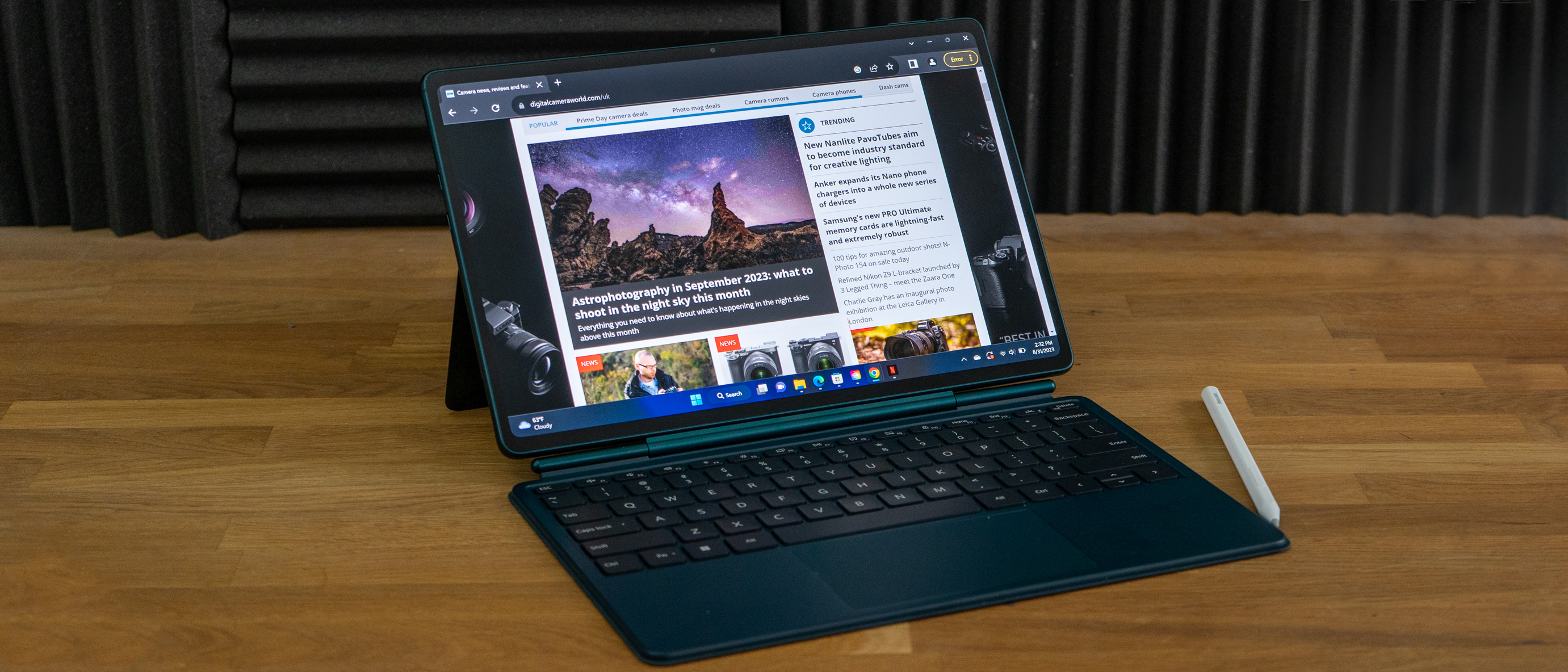Digital Camera World Verdict
With a bright screen and top-notch engineering, the Robo & Kala is drop-dead gorgeous, with an adaptable body sneaking in a very adaptable kick-stand while staying remarkably thin. The (as-we-publish included) matching keyboard is comfortable to type with and – given the relatively generous spec – the machine also manages to be excellent value, whether you're headed to school or off photo editing.
Pros
- +
All-day usable battery life
- +
Very thin and light
- +
Great looks
- +
Detachable backlit keyboard with remote control option
- +
Stong hinges offer drawing pad and laptop positions
- +
Upgradeable SSD
Cons
- -
Doesn't switch to standby on closing
- -
Display not 120Hz (like Surface Pro 9)
- -
Speakers could be better
- -
Bluetooth keyboard can power down a little quickly
Why you can trust Digital Camera World
If you're looking for a less fruity iPad Pro - one that's more about Windows than iOS - then Robo & Kala's stunning 2-in-1 might be the alternative you've been looking for. It's powered with an ARM processor - the same energy-efficient tech that Apple Silicon is built with, gifting it silent operation and great battery life. The keyboard and pen attachments are magnetic – more in common with the iPad Pro. Oh, and the body is an elegant CNC unibody style. Then again, it has two USB-C ports, lets you upgrade the storage, and runs a full desktop operating system. Now that's a bit different!
Actually, the OS gives it a bit more in common with the Microsoft Surface, which is also available in energy-efficient ARM-based form with detachable keyboard but, like this device, runs Windows 11. We were very impressed with that, which seems to have wiped away the early concerns about running Windows on ARM which have lingered online but should now be consigned to the bin of history.
Robo & Kala haven't been around long, but they seem determined to use this modern tech to break traditional boundaries, perhaps making a name for themselves as they shatter Apple's tablet-OS-for-tablets approach. We'll explore whether that's a good idea as we go (spoiler – it probably is), but we also need to know if the Robo & Kala 2–in–1, or Robo&kala as they write it on the case, is the right choice. It'd also be nice if they'd given it an actual name, but you can't have everything. Let's see how close we do get...
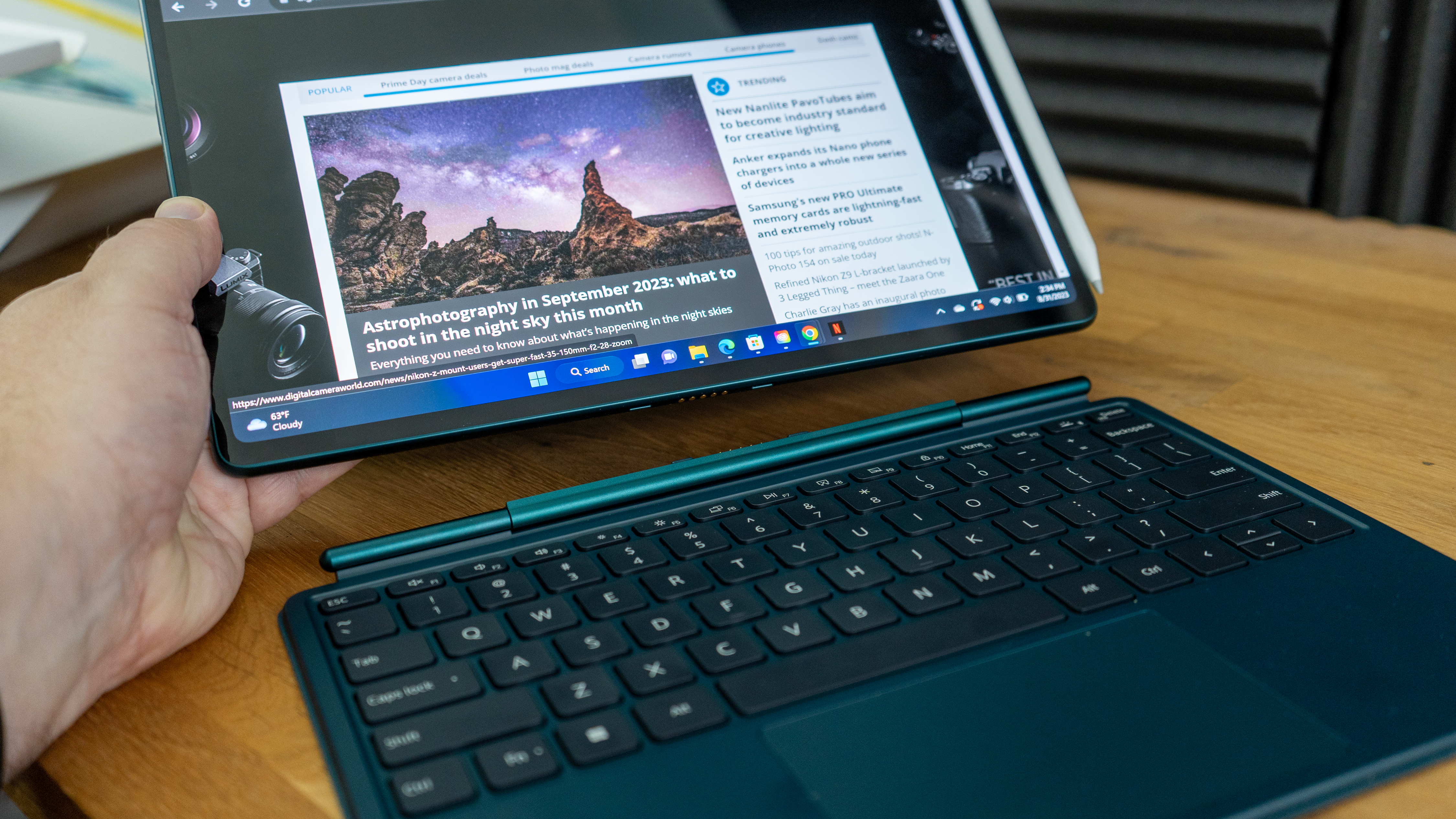
Specifications
Processor: Snapdragon 8cx Gen3 chip with 8 cores (4 + 4 efficiency)
Ports: 2x USB-C 3.2 (DP)
RAM: 16GB
SSD: 512GB
Screen: 12.6-inch
Resolution: 2560 x 1600 px (16:10 OLED) 98% DCI-P3
Battery: 'up to' 20 hours / 41.4Wh
Networking: Wi-Fi 6, Bluetooth 5.2
Cameras: 13 megapixel rear (4K video), 5MP front (1080P), 1MP infrared face unlock
Dimensions: 7.3mm
Weight: Tablet only: 690g
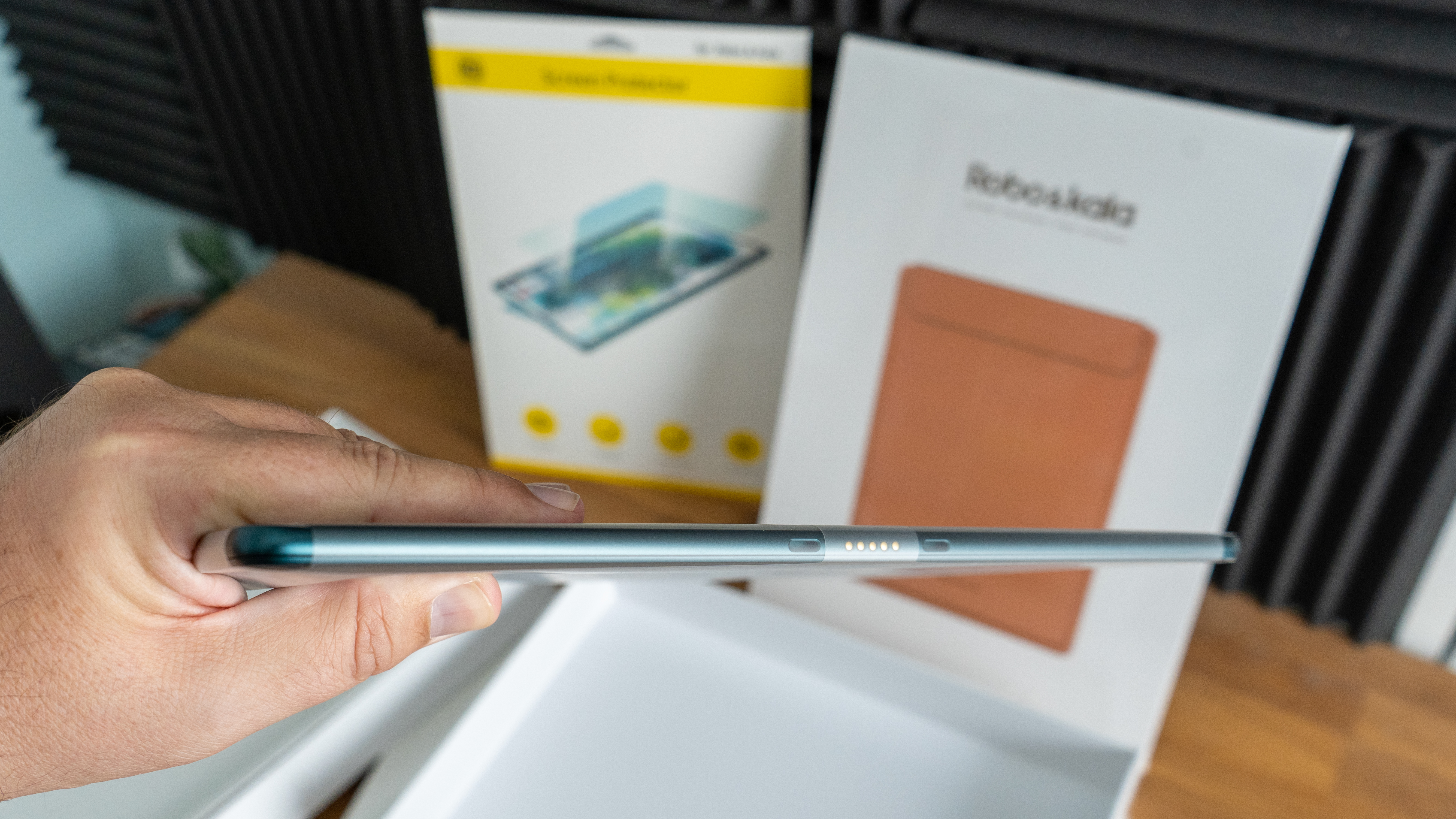
Key Features
This is a true 2-in-1 laptop and tablet running Windows 11 on ARM. It's desktop mode works with a color-matched keyboard and trackpad attachment (which, at least at first, is being bundled free via Amazon) and a kickstand. That kickstand can also be used alone, with strong hinges and a good range of movement.
Two USB-C ports allow for charging via the included 65W charger at the same time as connecting to a peripheral, while the optional pencil and keyboard need only magnets to be attached (and don't even need to be attached) making the OLED display very useful around the home and office. There are also front and back cameras for full tablet duties, and face unlock. Oh, and being a proper computer the USB-C ports are DisplayPort, so you can just plug into a monitor and start using it too.
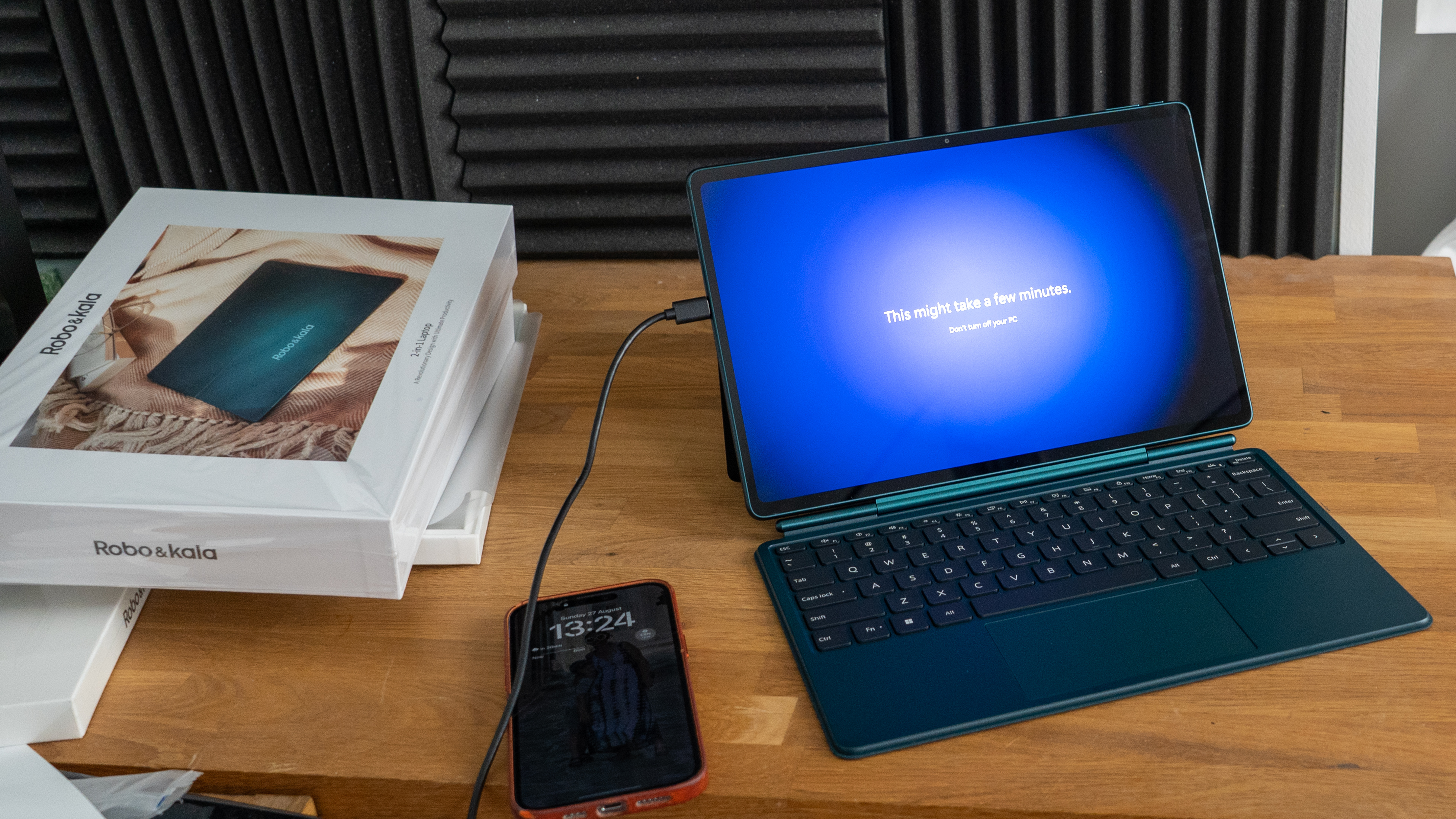
Build and handling
Our device arrived in a few separate boxes; the keyboard, tablet, a lovely case, and a pen. These reflect the alternate bundles on offer, and perhaps we were lucky to get the whole set, but one thing that was apparent from the packaging was the height of Robo&kala's aspiration. White boxes, simple clean design, film wraps, need I say more?
Unlike the iPad, though, this tablet can stand up on its own thanks to the kickstand which allows the device to be positioned at a laptop-like angle all the way around to an angled notepad. That goes well with the pencil which works straight out of the box and is clearly inspired by the Apple Pencil 2 – no bad thing.
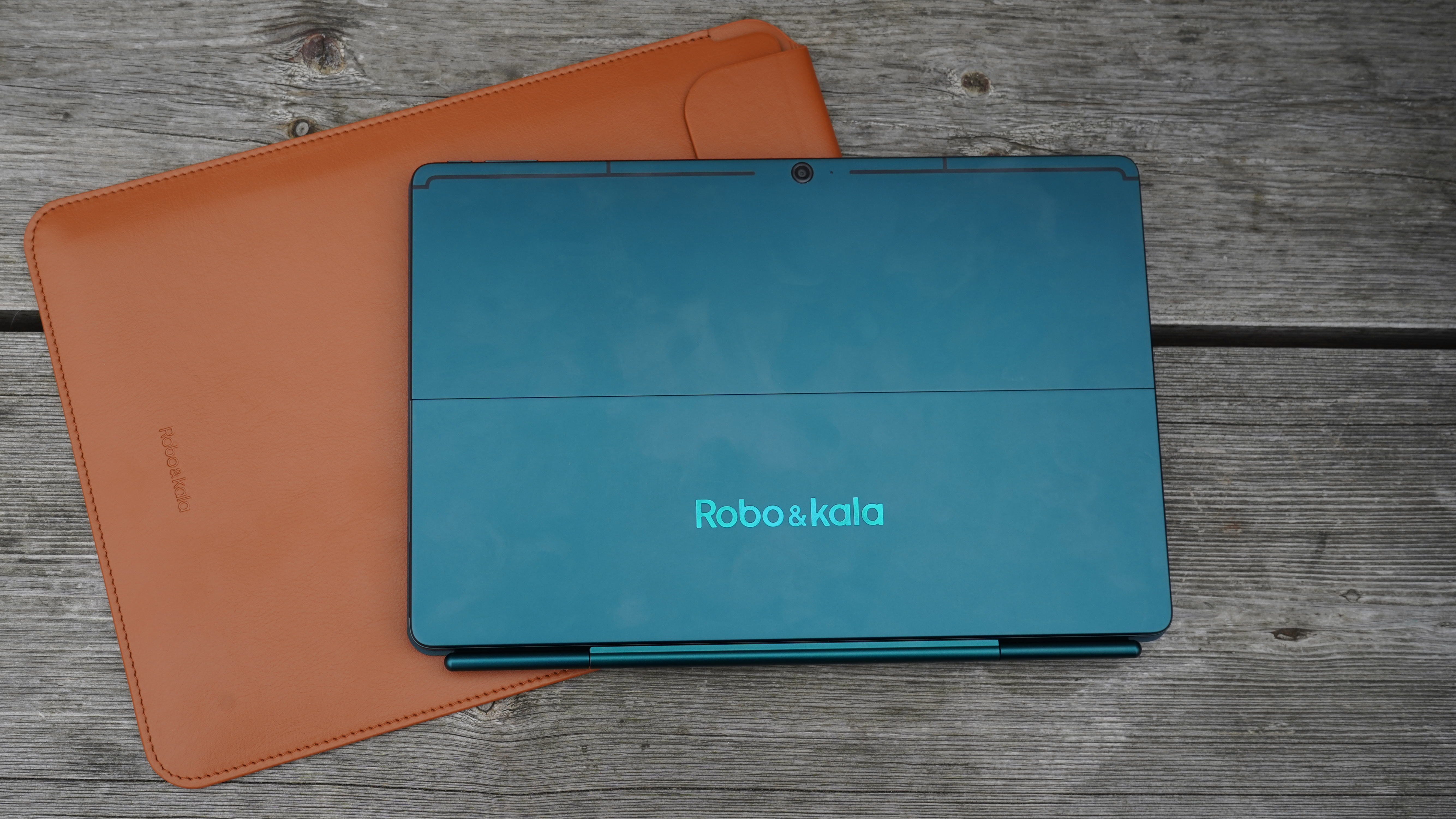
The chassis is a rich green aluminium color and I simply cannot understate how good it looks (though it is a fingerprint magnet, so keep a cloth nearby!) The edges reveal drilled-hole speakers in the gorgeous metallic green build. These come around the 12.6-inch AMOLED display and its thin bezel, and the kickstand closes flat against the back with a hinge at either end. Admittedly the stand edge is so thin because it is metal right to the edge, so there is a risk of scratching, but it seems OK.
Aside from acting as a laptop, tablet, or notebook, the device offers an extra trick via a 'separation mode' in which the keyboard's Bluetooth keeps it working remotely from the tablet. Imagine being able to plug into a display system but take the keyboard to the meeting table? It's a great idea, and very handy, though it'd be better if the keyboard didn't disconnect to save battery so readily and then take a few seconds to relink.
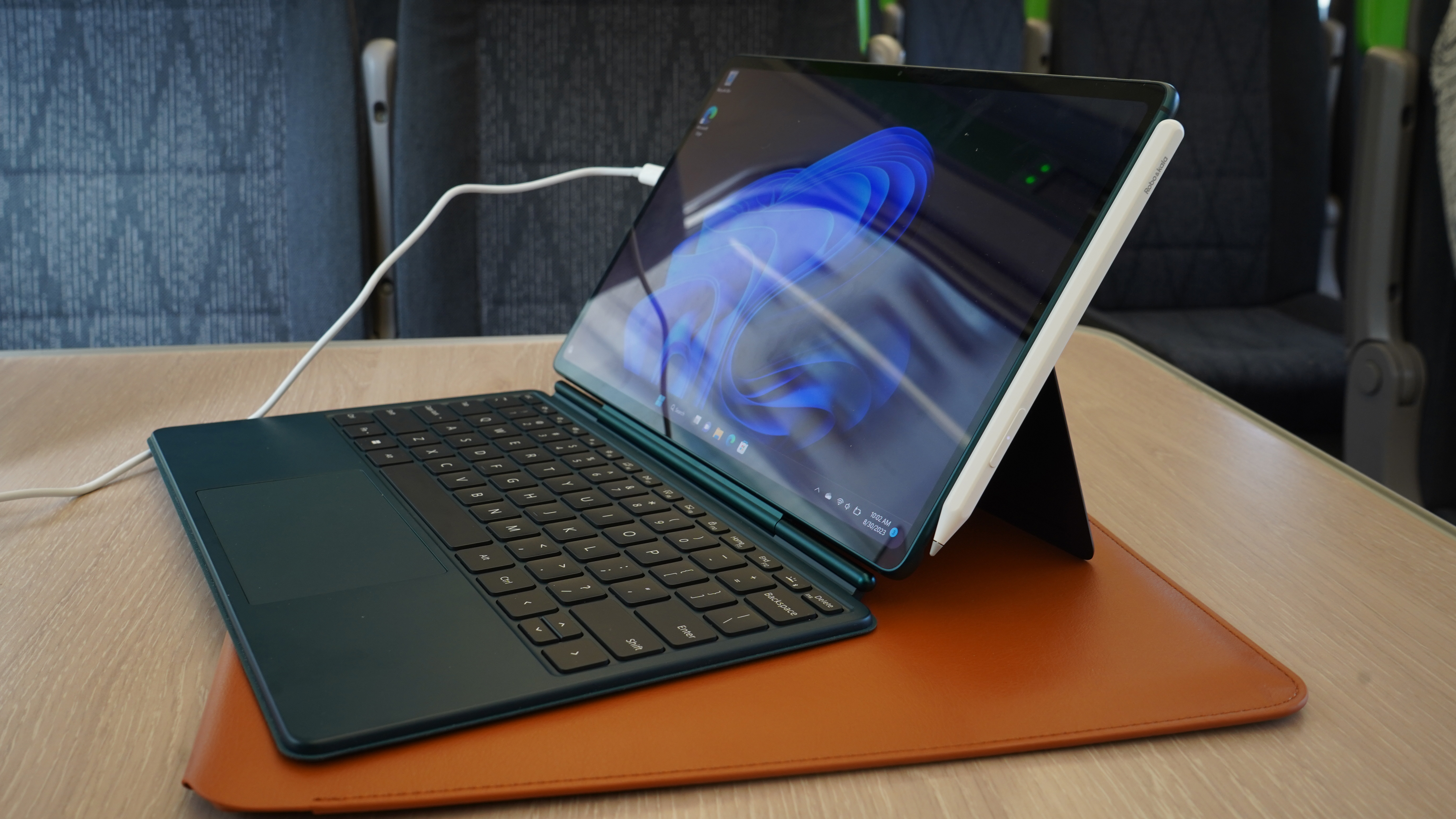
Display
The OLED screen's 600-nit brightness is a noticeable strength of the device and colors are rich and easily seen in normal light. The resolution is such that Windows displays natively at 200%, which means it looks phenomenal compared to the grainy pixelation on a typical monitor. The rounded corners also look good, though they do hide a few pixels.
When using the very Apple-like pencil, the point of interaction seems to follow reasonably smoothly, and the 4,096 pressure levels can be used in different ways via Windows Pen setup. Similarly, the screen seems to detect fingers naturally and the small bezel or sensible error rejection means that using it handheld becomes second nature quickly.
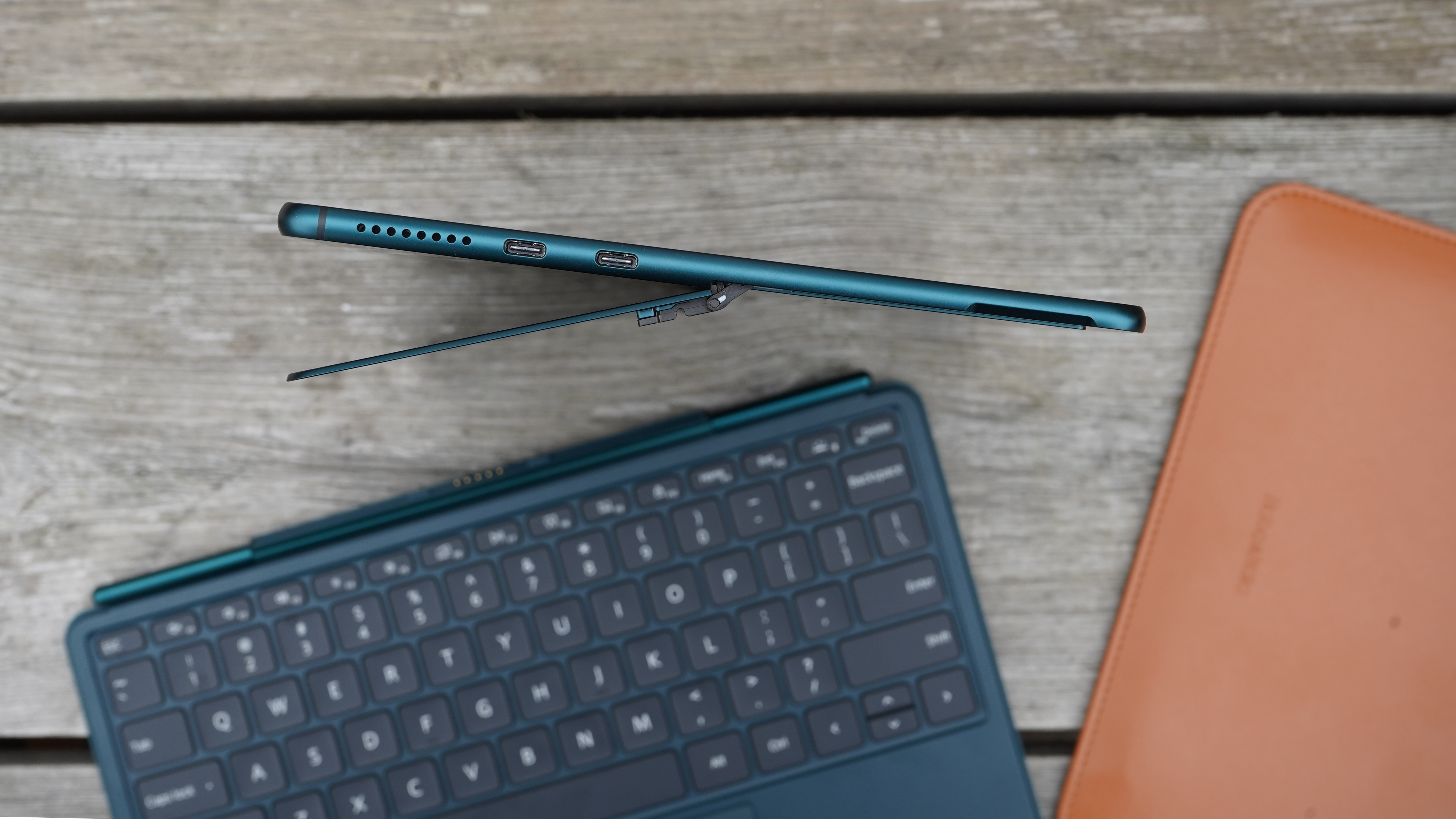
Camera
As with most tablets, you won't be holding a phone replacement in your hand (even the iPad Pro has one fewer camera than the iPhone Pro), but the main camera certainly has the ability to capture usable images in adequate light or to perform other duties like scanning QR codes.
The cameras are both flat against the shell of the device which makes it slip easily into the case and makes them easy to wipe clean (and, to be fair, easy to get finger grease on the selfie/conferencing camera).
Admittedly the face unlock feature does like to be looking straight at you, and blinks agressively at you with a red LED which can be a little annoying. Occasionally I accidentally lifted the tablet from the keyboard in the process of unlocking, but it is all resolved in a moment, and you don't have to use it after all.
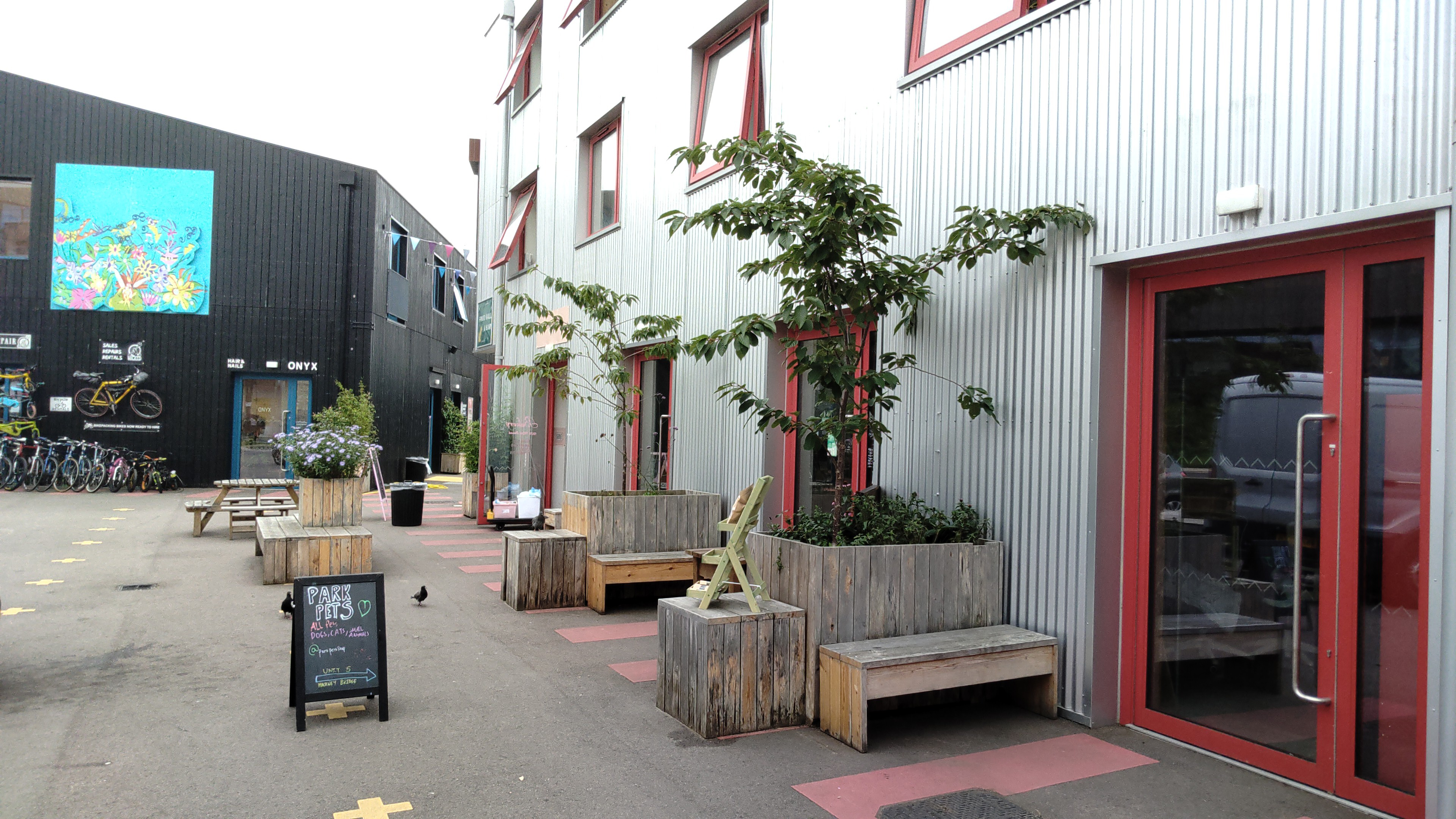

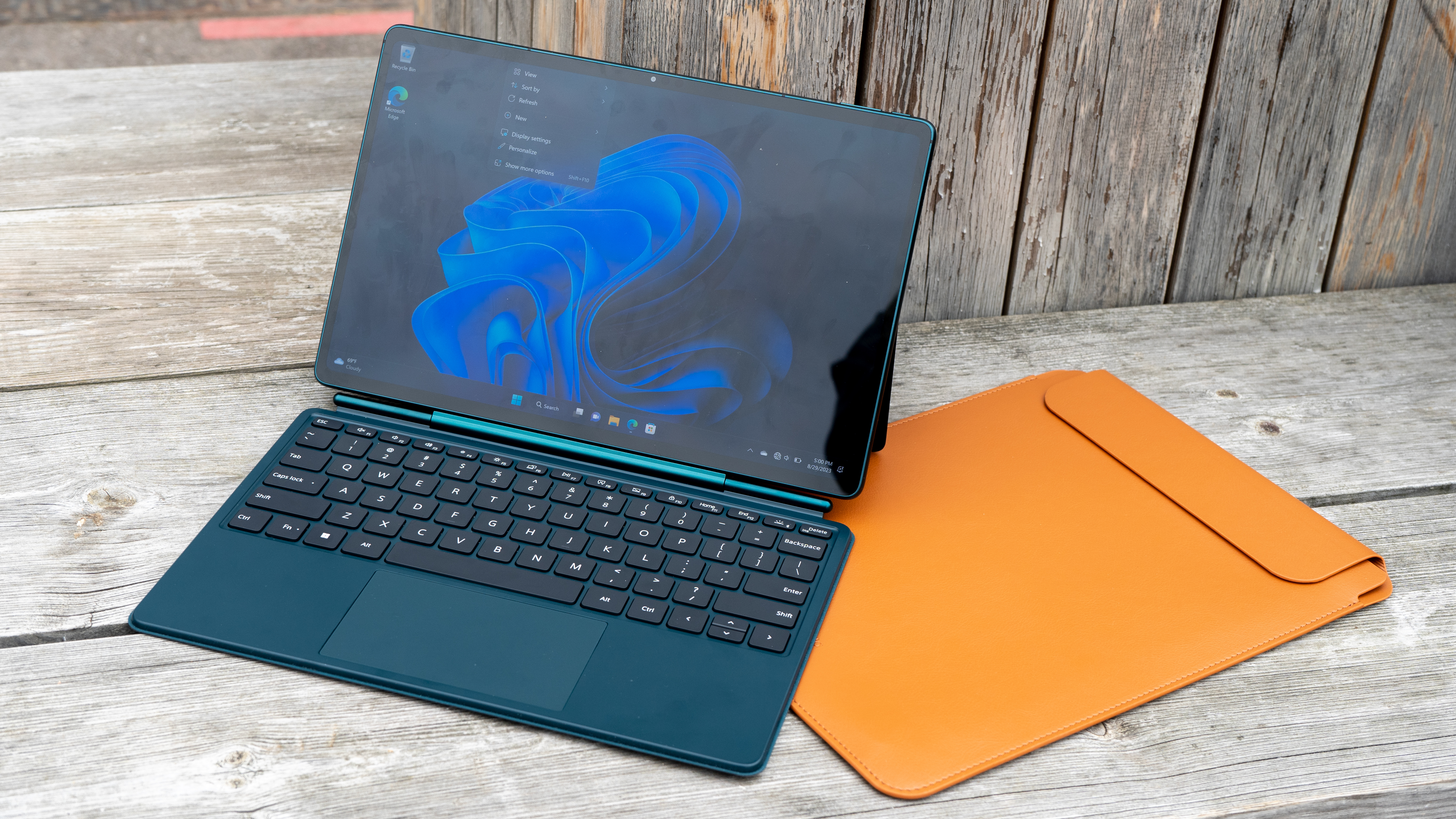
Performance
In benchmark testing the Robo & Kala wouldn't be expected to perform faster than high-end computers, but in real-world use the machine blasts through day-to-day tasks like web browsing, file management and the like. Even when we try more demanding tools like Photoshop it works.
Given the size of the machine, that is actually a little difficult to get your head around. The idea that this can be a 'proper' computer is almost incomprehensible. The fact it's doing so – and looking so good doing it – in a world Apple seem to want customers to fork out for a phone, laptop, AND a tablet ought to be a real worry for team Cupertino!
Putting it into numbers it's also apparent that, compared to the Surface Pro 9 or a Dell XPS 13 with an Intel processor, that there is little in it, especially in the multi-core tests.
| Header Cell - Column 0 | Robo & Kala (THIS) | Dell XPS 13 (Intel i7-1250U, Iris Xe) |
|---|---|---|
| Geekbench 5 single-core | 1,069 | 1,637 |
| Geekbench 5 multi-core | 5,744 | 6,060 |
It's also worth pointing out that even though Robo & Kala's battery claim of 20 hours is wildly over the top it's still possible to get around half that which is excellent. This is where the ARM chip's efficiency outlasts ordinary laptops and this difference is significantly more noticeable than benchmarks for many.
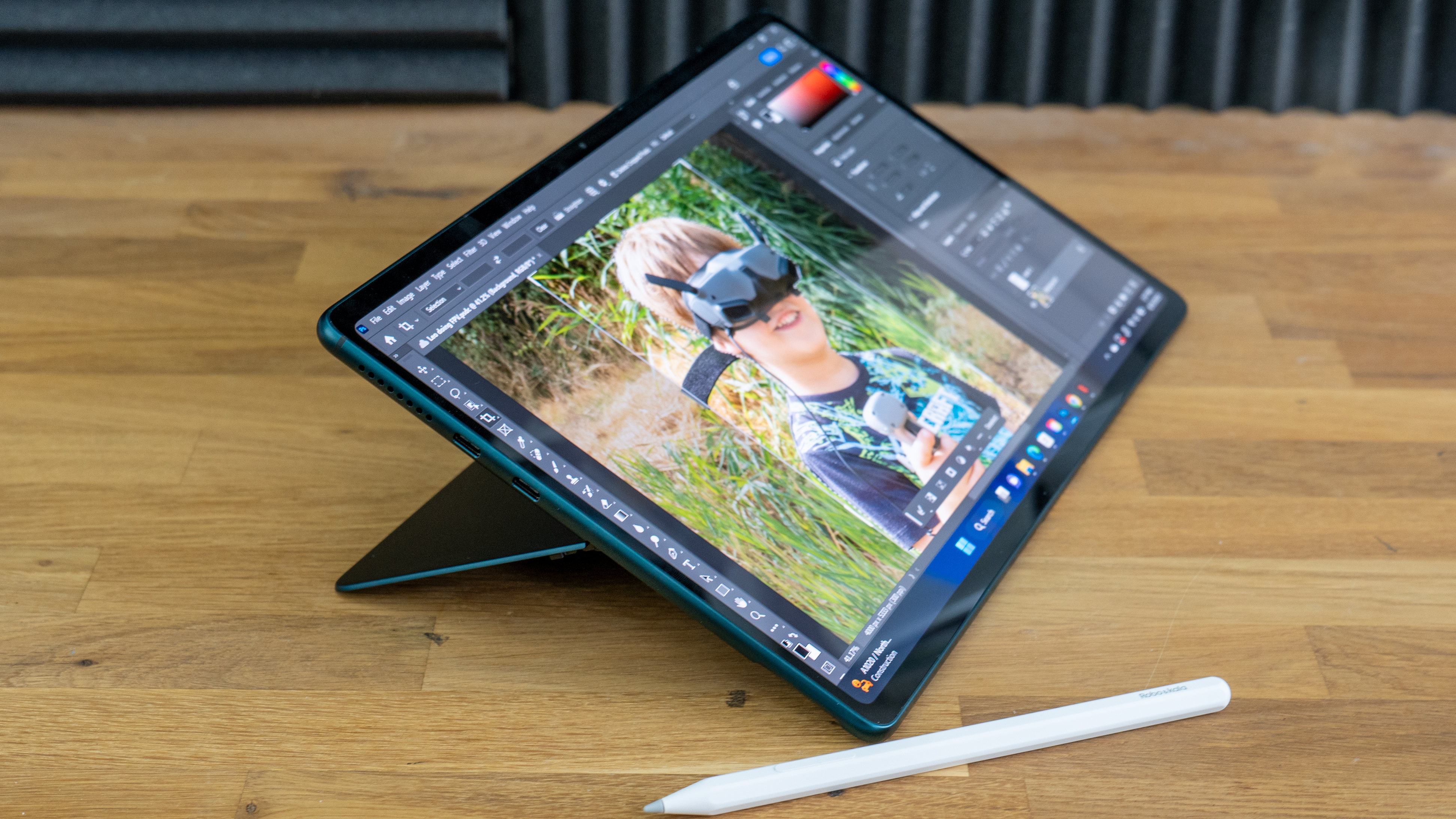
Robo & Kala for photographers
Of course the built-in cameras aren't really the most exciting aspect of the device for serious photographers – what is more interesting is the chance to take control of your favorite software in as many ways as possible. In that regard a lightweight tablet with a bright screen, a pressure-sensitive pen and a long battery life are appealing, before you even throw in the prospect of a full grown-up operating system and the software choice that brings with it.
I tried Photoshop – real Photoshop, which works on ARM – and it seemed reasonably snappy to me, though I could perceive a hint of a lag which I simply don't on a MacBook. This was especially true with the pencil, but it is still handy, and the button can be used to switch from, say, draw and erase.
In contrast to the world of Apple, it has to be said that Windows on ARM still has a few little pauses. On a fanless machine with silent file storage, they can be somewhat disconcerting, but the trade-off is that you have access to a full file system – you can plug in external storage, copy files over and do with them what you will. The screen's resolution is also well-suited to camera remote control apps.
It's also true that a good number of my Adobe apps weren't available in ARM-friendly form; no Premiere Pro, for example.
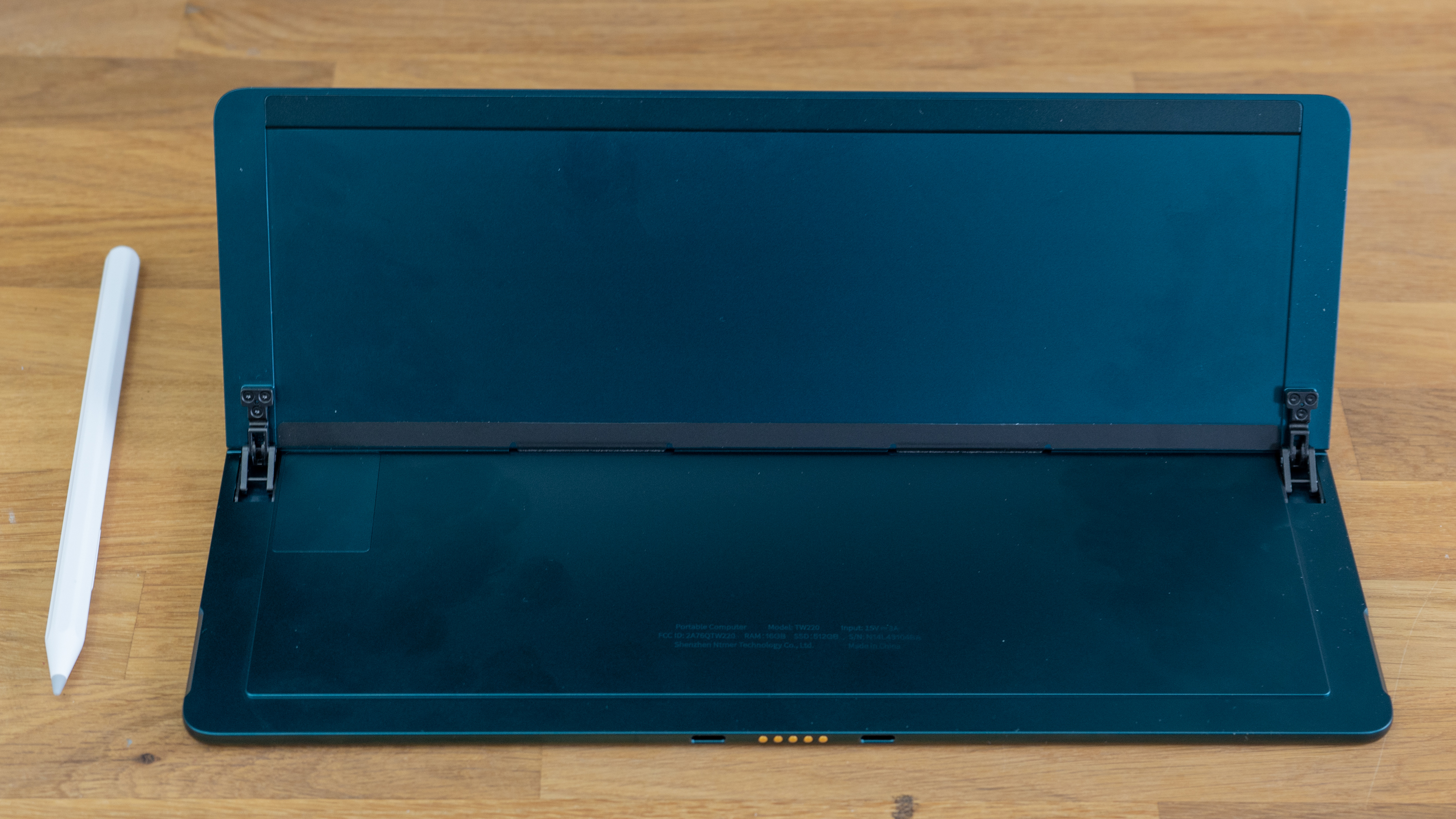
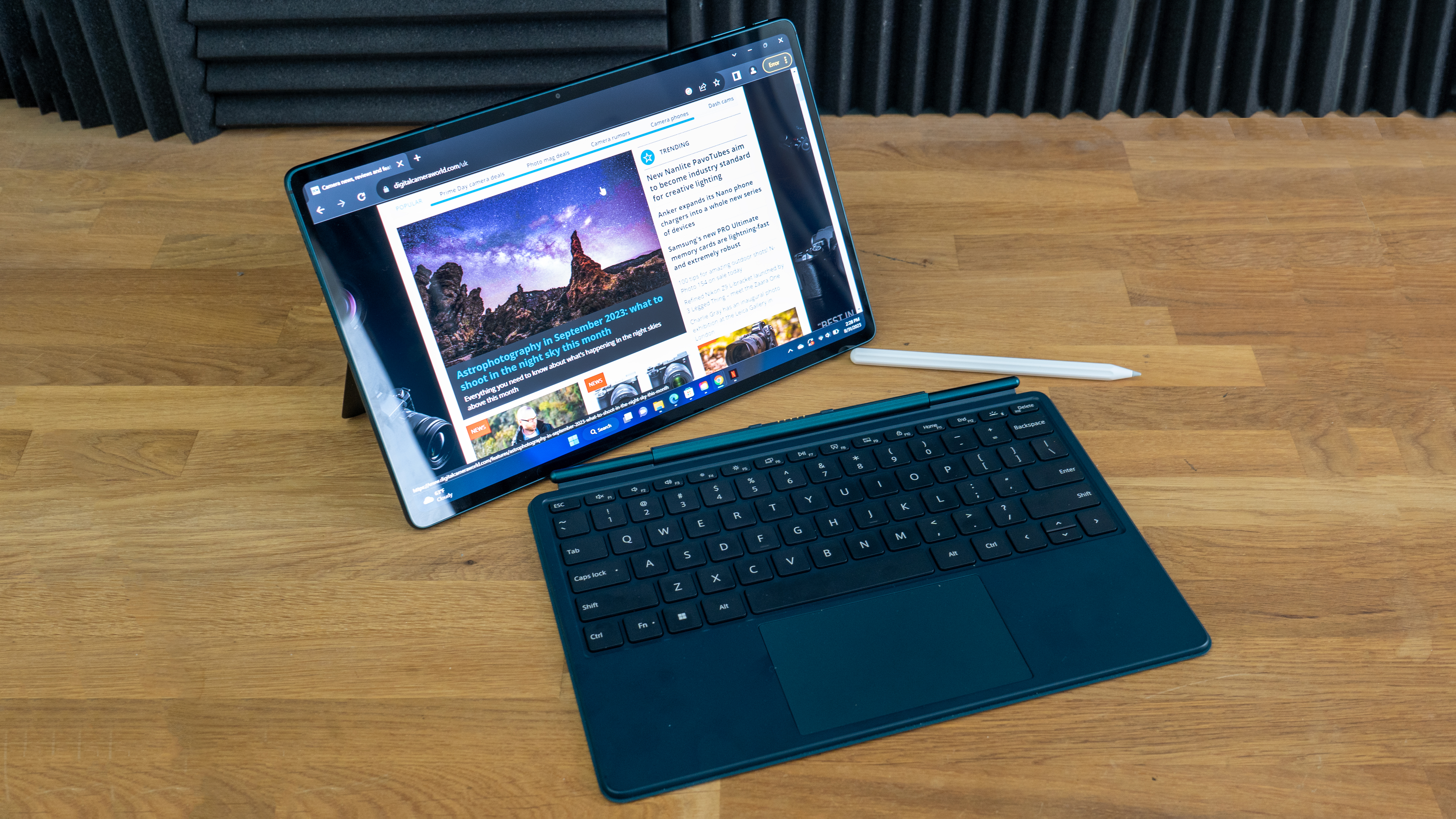
Overall verdict
Looking gorgeous and so sensibly priced, with so much to be said for it in terms of flexibility it's hard to imagine why this shouldn't make it to everyone's shortlist. Perhaps only video editors – who can get Final Cut on the iPad Pro might want to skip this.
Admittedly we encountered a few little glitches that aren't part of the tablet experience for Apple loyalists, but in those instances, we were doing things beyond iOS's abilities anyway.
Similarly there area couple of things the pricier Surface Pro has which would be nice here, not least the rather nice dual-magnet keyboard. Typing on the Robo & Kala is still pretty easy as the keys have about 1.3mm travel, but the keys are resolutely level with the surface. The trackpad is fine, too, though perhaps slightly uneven (easier to press at the bottom). Other devices also offer cellular data connections which would be a nice option to have even if, to be honest, you're usually better off using your phone's hotspot.
Mostly, though, the Robo & Kala just feels like a premium product. It feels good in the hand, the kickstand is tough (but not too tough), the backlighting on the keypad doesn't leak round the keys and they're good to type on. Neither laptop mode nor tablet feel like a compromise, and Windows seems well able to handle both.
When weighed against the investment, this is the best Windows on ARM device out there but, more than that, this should be a real fright for Apple too. It is a powerful, adaptable portable computing device that still manages to feel premium in nearly all the right places without being wallet-busting. It serves to elevate my view of Windows as a platform.
This isn't the only device that should have the iPad quaking in its boots – check our review of the Lenovo Tab Extreme as well as our guides to the best iPad alternatives, the best Android tablets, and the best iPads.

With over 20 years of expertise as a tech journalist, Adam brings a wealth of knowledge across a vast number of product categories, including timelapse cameras, home security cameras, NVR cameras, photography books, webcams, 3D printers and 3D scanners, borescopes, radar detectors… and, above all, drones.
Adam is our resident expert on all aspects of camera drones and drone photography, from buying guides on the best choices for aerial photographers of all ability levels to the latest rules and regulations on piloting drones.
He is the author of a number of books including The Complete Guide to Drones, The Smart Smart Home Handbook, 101 Tips for DSLR Video and The Drone Pilot's Handbook.
